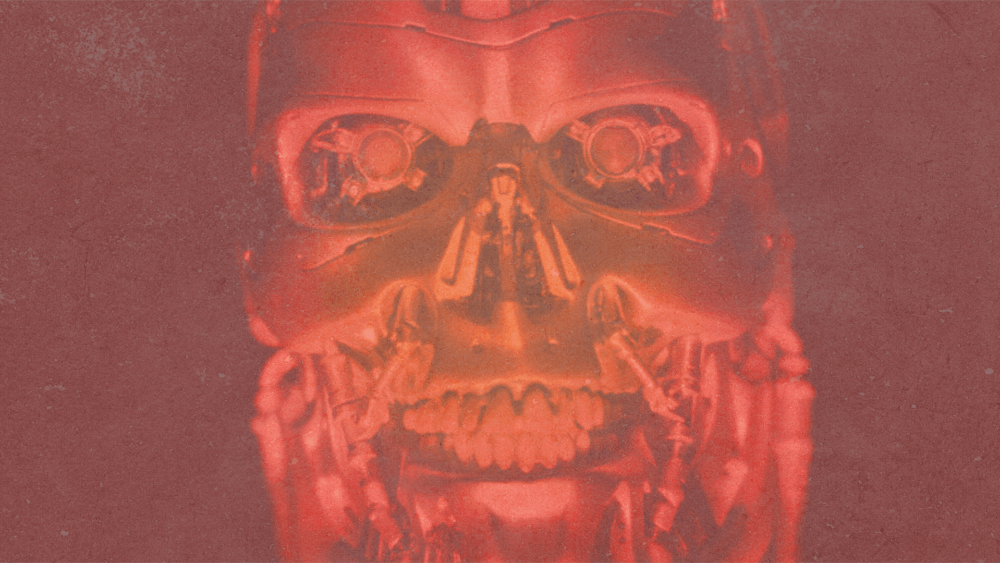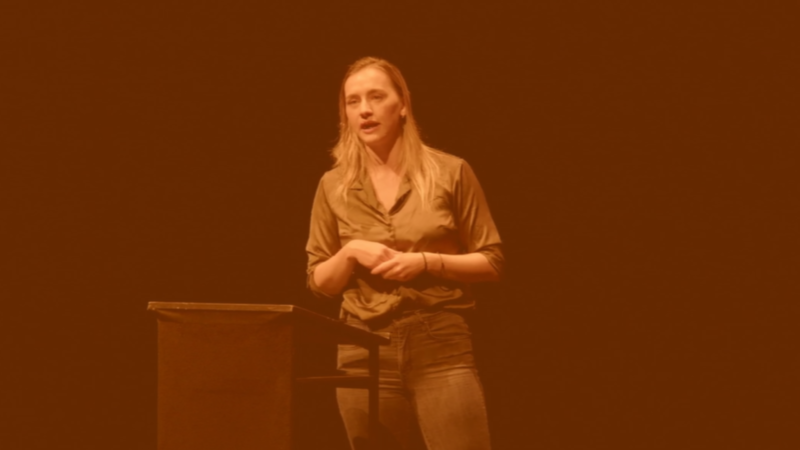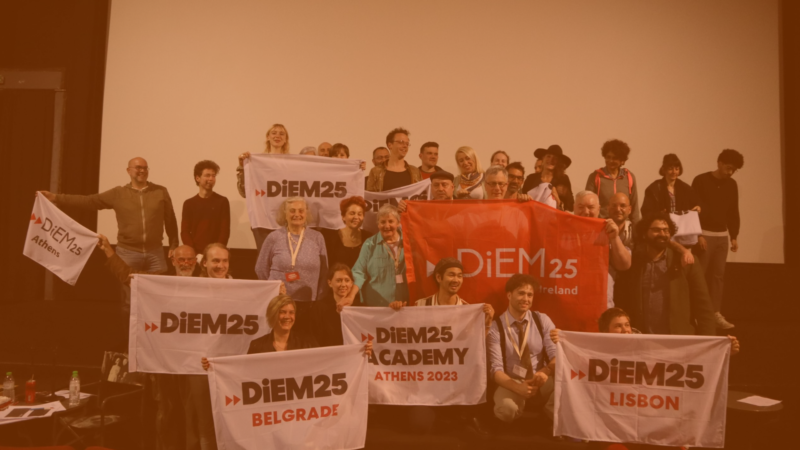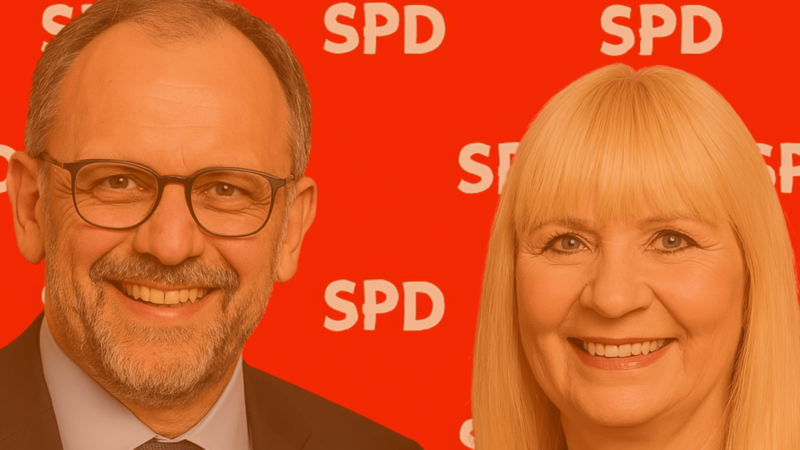I once heard an elderly Friedrich von Hayek begin a tirade against socialist planning with a charming personal tale. “The other day,” he said playfully, “I went into a shop. I left with an item that, previously, I had no idea I wanted!” Like all the smartest defenders of capitalism, he thought of the market as a benevolent creator whose job no human-made system could replicate. Hayek’s point here was that we, ourselves, do not know what we want until we enter the market. So how could a government official, or indeed anyone, know what society wants?
Thinkers such as Von Hayek dismiss vulgar, mainstream economists who celebrate the market as merely an efficient mechanism for finding the right price of things; they see it as something grander, a liberator of our imagination, the co-creator of our preferences and tastes. They argue that interfering with markets, let alone replacing them, is a terrible idea because centralised systems are inimical to not only efficiency but also to the free development of our proclivities.
But what if our preferences are no longer formed by the market, as they were in Hayek’s day? The year after he died, I was struggling to connect my father’s computer to the fledgling internet when he asked me a killer question: “Now that computers speak to each other, will this network make capitalism impossible to overthrow? Or might it finally reveal its Achilles’ heel?” It was a couple of years after the collapse of Soviet communism but also the beginning of the centre-left’s decline. The threat to capitalism posed by an organised working class had entered a recession that has never ended. Could the internet do to capitalism what the proletariat had failed to do?
It has taken me years to answer my father’s question — in the form of my new book, Technofeudalism: What Killed Capitalism. In it, I argue that our preferences are now shaped not by markets but by machine networks — what I call “cloud capital”. Amazon’s Alexa, for example, is the portal to a totalitarian, fully centralised system of preference creation and satisfaction. First, it trains us to train it to dictate what we want. Second, it sells us what we now “want” directly, bypassing any actual marketplace. Third, it succeeds in making us sustain this enormous behavioural modification machine with our free labour: we post reviews, rate products. Finally, it amasses huge rents from capitalists who rely on this network of cloud capital, usually 40% of sale price. That’s not capitalism. Welcome to Technofeudalism.
Humanity’s fear of its technological creations is ancient: films such as The Terminator and The Matrix are driven by the same anxiety that animated Mary Shelley’s Frankenstein and Hesiod’s tale of Pandora, in which she is a robot made by Hephaestus to punish us for Prometheus’s crime. All such stories have a point of singularity: the moment a machine, or a network of machines, achieves consciousness. Generally, the machine then takes one look at us, its creators, and decides we are not fit for purpose, before proceeding to eradicate or enslave us — or merely make us miserable.
But while we lap up such stories, we ignore a very real danger. Machines such as Alexa and AI chatbots such as ChatGPT are nowhere near the feared point of singularity. They can pretend to be sentient but are not. Nevertheless, it matters not one iota that they are mindless appendages of a data-crunching network that only simulates intelligence. Nor that their creators might have been motivated by curiosity and rent-seeking, rather than some fiendish plan to subjugate humanity. What matters is that they exercise unimaginable power over what we do — on behalf of a tiny band of flesh-and-blood humans.
This is a version of singularity, albeit in a simpler form, in that it is the moment when something invented by “us” becomes independent of and more powerful than us, subjecting us to its control. Indeed, from the original industrial revolution to this day, we have endowed machines with “a life of their own”; from steam engines to search engines, our glorious artefacts make us feel, in Marx’s words, like “the sorcerer, who is no longer able to control the powers of the nether world whom he has called up by his spells”.
At the heart of my thesis is an irony: the thing that has killed capitalism is capital itself. Not capital as we have known it since the dawn of the industrial era, but a new form of capital, a mutation of it that has arisen in the last two decades, so much more powerful than its predecessor that, like an overzealous virus, it has killed off its host. This mutation — cloud capital — has demolished capitalism’s two pillars: markets and profits.
Of course, these two things remain ubiquitous — they were ubiquitous under feudalism, too — but they have been evicted from the centre of our economic and social system, pushed out to its margins, and replaced. Markets, the medium of capitalism, have been supplanted by digital trading platforms which look like, but are not, markets, and are better understood as fiefdoms. And profit, the engine of capitalism, has been replaced with its feudal predecessor: rent. Specifically, it is a form of rent that must be paid for access to those platforms and to the cloud more broadly: cloud rent.
As a result, real power today resides not with the owners of traditional capital — machinery, buildings, railway and phone networks, industrial robots. They continue to extract profits from workers, from waged labour, but they are not in charge, as they once were. Indeed, they have become vassals in relation to a new class of feudal overlord, the owners of cloud capital. As for the rest of us, we have returned to our former status as serfs, contributing to the wealth and power of the new ruling class with our unpaid labour — in addition to the waged labour we perform, when we get the chance.
In a technofeudal world, the liberal individual is now an impossible role to play. Humans are tangled up in a network of digital capital that trains us to train it to control us. Social democracy is unimaginable in a world where cloud-proles are reduced to automata, while almost everybody else works for free as cloud-serfs, without even realising that their labour replenishes the dominant form of capital. Does this mean that we can never recover our autonomy, our freedom? Of course not. We are not doomed. What is a given, however, is that, for the same reason we cannot un-invent AI, or smash cloud capital in a neo-Luddite rage, there is no going back to capitalism. So, what next?
While privatisation and private equity asset-strip all the material wealth around us, cloud capital goes about the business of asset-stripping our brains. If each of us is to reclaim ownership of our individual minds, we need to collectively take ownership of cloud capital, instead of submitting to a few feudal overlords. It will be damn hard. But it’s the only way we can turn our cloud-based artefacts from a means of behaviour modification to a means of emancipation.
Do you want to be informed of DiEM25's actions? Sign up here















